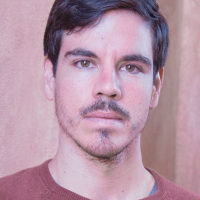Mayors and other leaders from 12 U.S. cities met in Washington, D.C., at the end of November to brainstorm ways they could start making middle-class careers and postsecondary education a reality for their most impoverished communities.
And Dana D’Orazio, a program manager for the National League of Cities’ (NLC) Institute for Youth, Education and Families, says there was one thing that even those governments with exemplary workforce pipeline initiatives could agree on: They needed to widen the way they design these programs to include more local perspectives.
“They’re now going back to their communities and realizing, ‘We’ve only been listening to one voice,’” she says. “‘It’s likely someone who’s been a leader in the community, but we need to go beyond that and we need to have more voices involved.’’”
Her organization hosted the three-day event, called the Leadership Academy, and selected cities based on how far their local economic development plans went beyond the realm of good intention.
San Antonio, for example, has a data-rich website devoted to its SA2020 plan, a citywide plan that concentrates resources on building up 11 key areas, including economic competitiveness, sustainability, and arts and culture. The city’s also publicizing the 59 goals it wants to reach by 2020, letting residents track progress in real time. (Or not — it also discloses when the city falls flat on a goal, or performs worse.)
Austin, Charleston and Nashville also sent reps to the meeting.
“It was really important for them to show us that there was already synergy going on in the local city space,” D’Orazio says. And the more partners the better. NLC sees cities linking government workforce programs with chambers of commerce and local education institutions as key.
“We were looking for that momentum,” says D’Orazio. “Was this already happening in some way? Was there a goal being set — or an agenda that’s been drafted? We wanted them to show us that they’re grappling with it and they’re starting to make some headway.”
In a recent report by the NLC called State of the Cities 2016, researchers surveyed mayors’ speeches in 200 cities to catch the pulse of what’s on the mind of local government leaders today. Workforce development popped up in 30 percent of the speeches, while, perhaps unsurprisingly, jobs were in 55 percent of speeches.
Audrey Hutchinson, a director at the Institute for Youth, Education and Families, says mayors’ offices are increasingly interested in gatherings like the Leadership Academy because they realize no single department — or municipality — can make it alone.
“They’re so busy working in their own spaces that they never really have time to think or work together,” she says. “That’s versus sitting in their own silo box in the mayor’s office. They know they have to say, ‘Okay, how do we own this agenda together, and how do we push it forward as a team,’ with multiple stakeholders both in and out of the government.”
Ana Acevedo, the education policy administrator with San Antonio, says her city walked away from the Leadership Academy recognizing untapped strengths in a few areas. For one, they want to begin building up ties with local affordable housing groups so that they can offer support to “non-traditional” students: parents, heads of household and those who have to work full-time while going to school.
She also notes there’s a need to bring more awareness to women through postsecondary education about the viability of male-dominated industries like manufacturing. “[It’s] increasingly more automated with robotics, versus the perception that both young students, females in particular, and parents have that it’s ‘dark, dirty and dangerous’ work,” says Acevedo.
The Leadership Academy marked the beginning of a two-year NLC program. The organization will do follow-up calls with some of the 12 cities to track their progress, and work with mayors’ offices closely to help them make their goals a reality.
“Our goal for the end of this is that we have actual initiatives that are sustainable and scalable,” says D’Orazio. “That we see more access to education and meaningful employment, and that for us, would mean thriving communities across the U.S.”
The Equity Factor is made possible with the support of the Surdna Foundation.

Johnny Magdaleno is a journalist, writer and photographer. His writing and photographs have been published by The Guardian, Al Jazeera, NPR, Newsweek, VICE News, the Huffington Post, the Christian Science Monitor and others. He was the 2016-2017 equitable cities fellow at Next City.

















